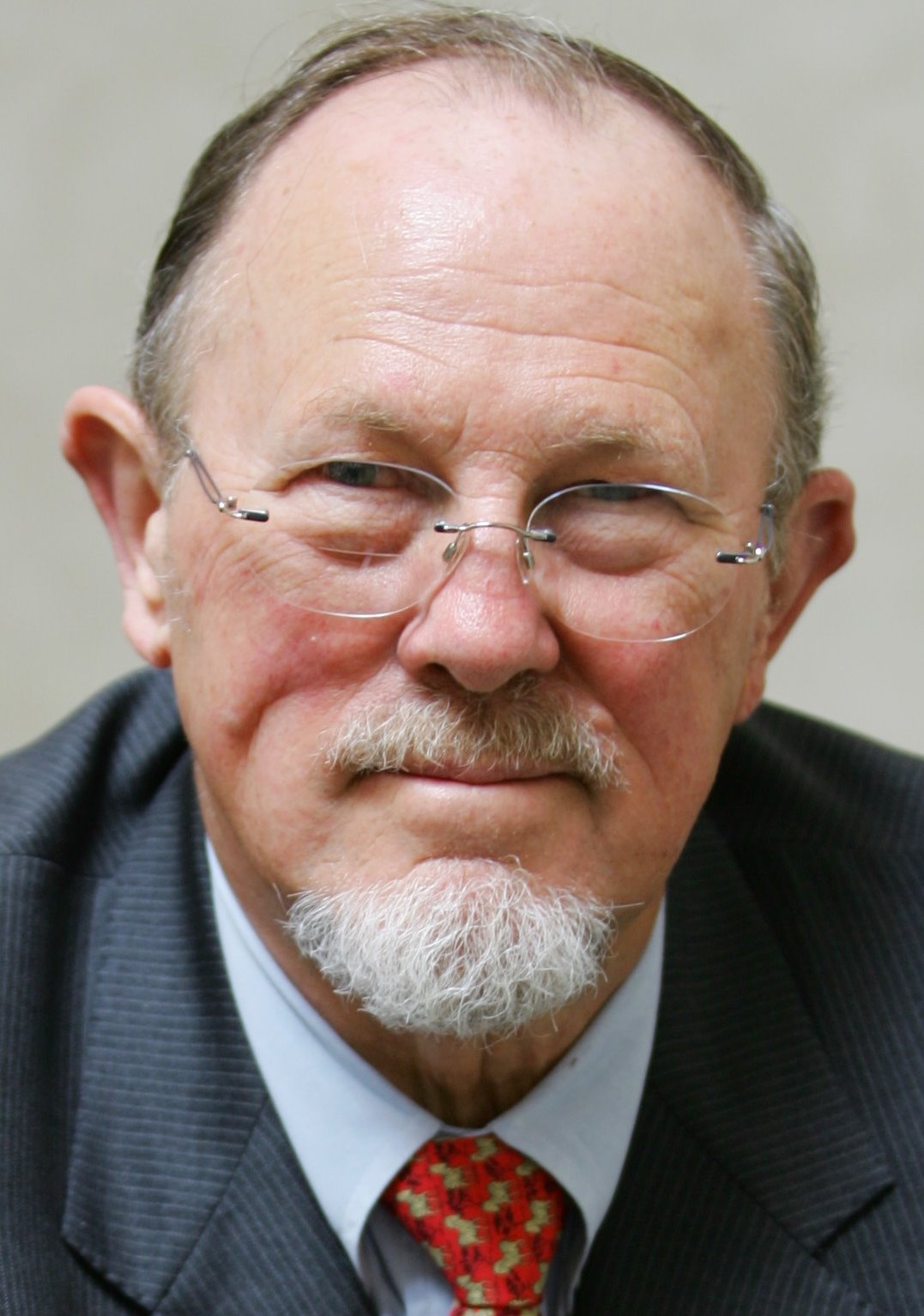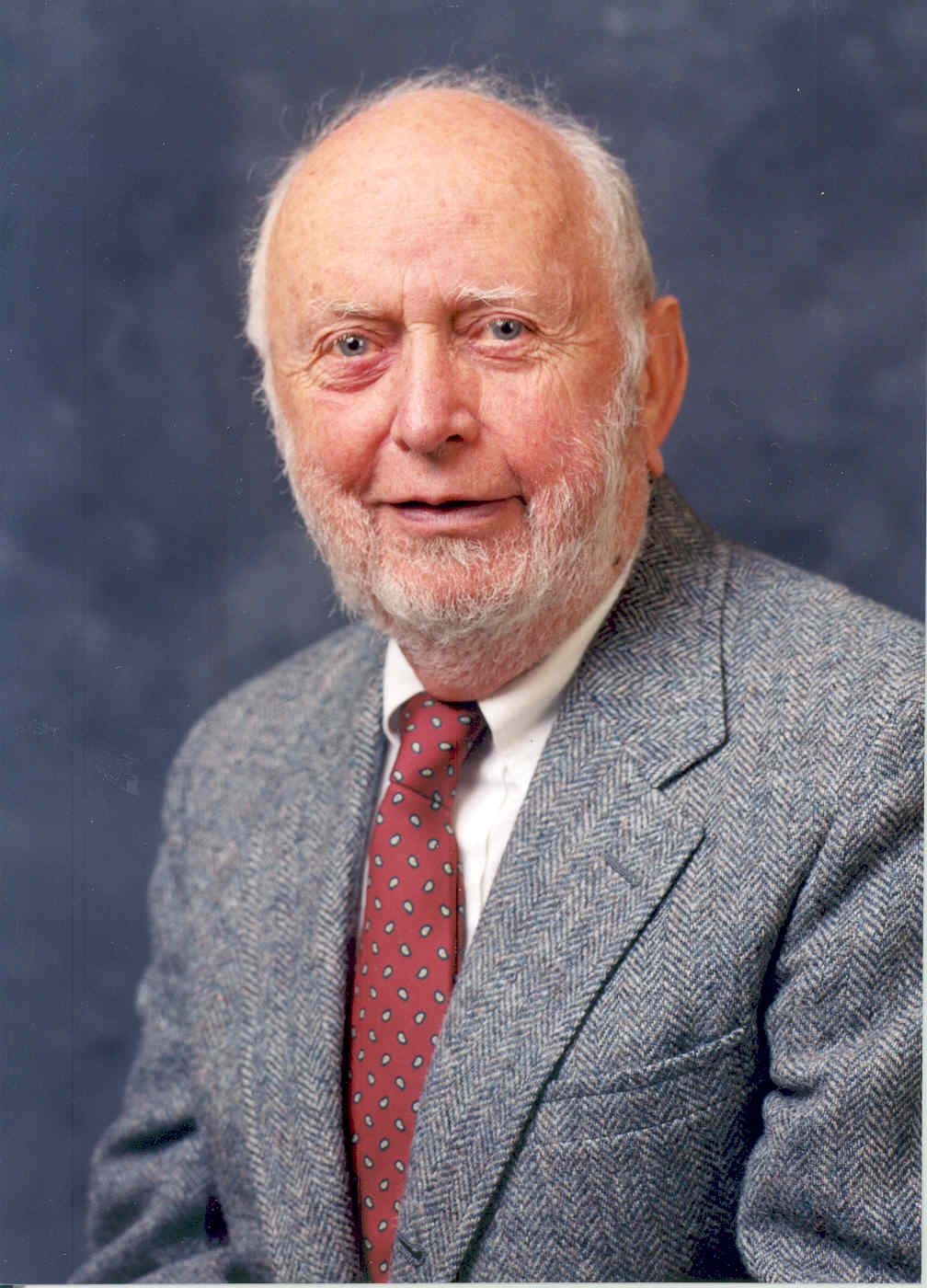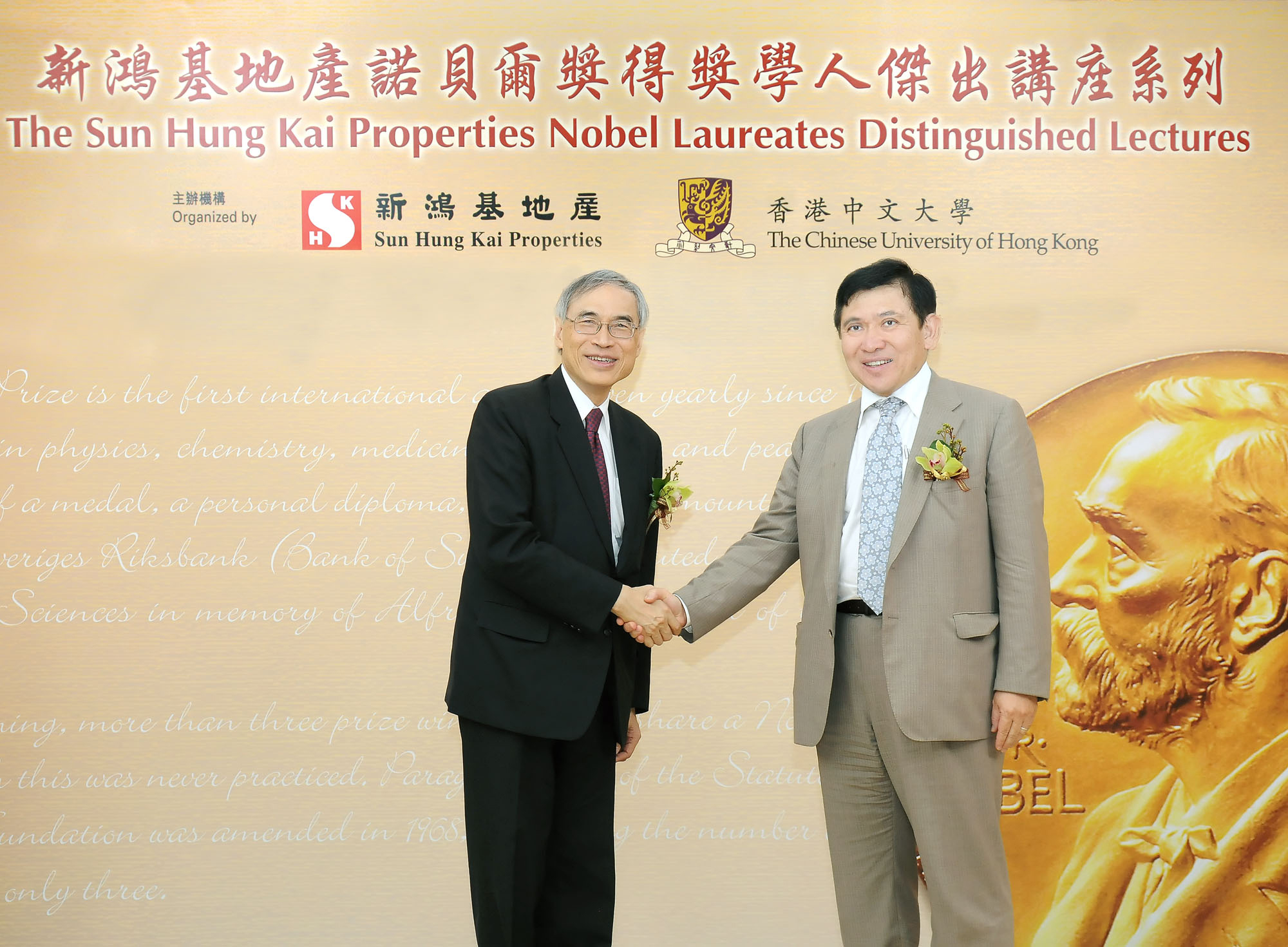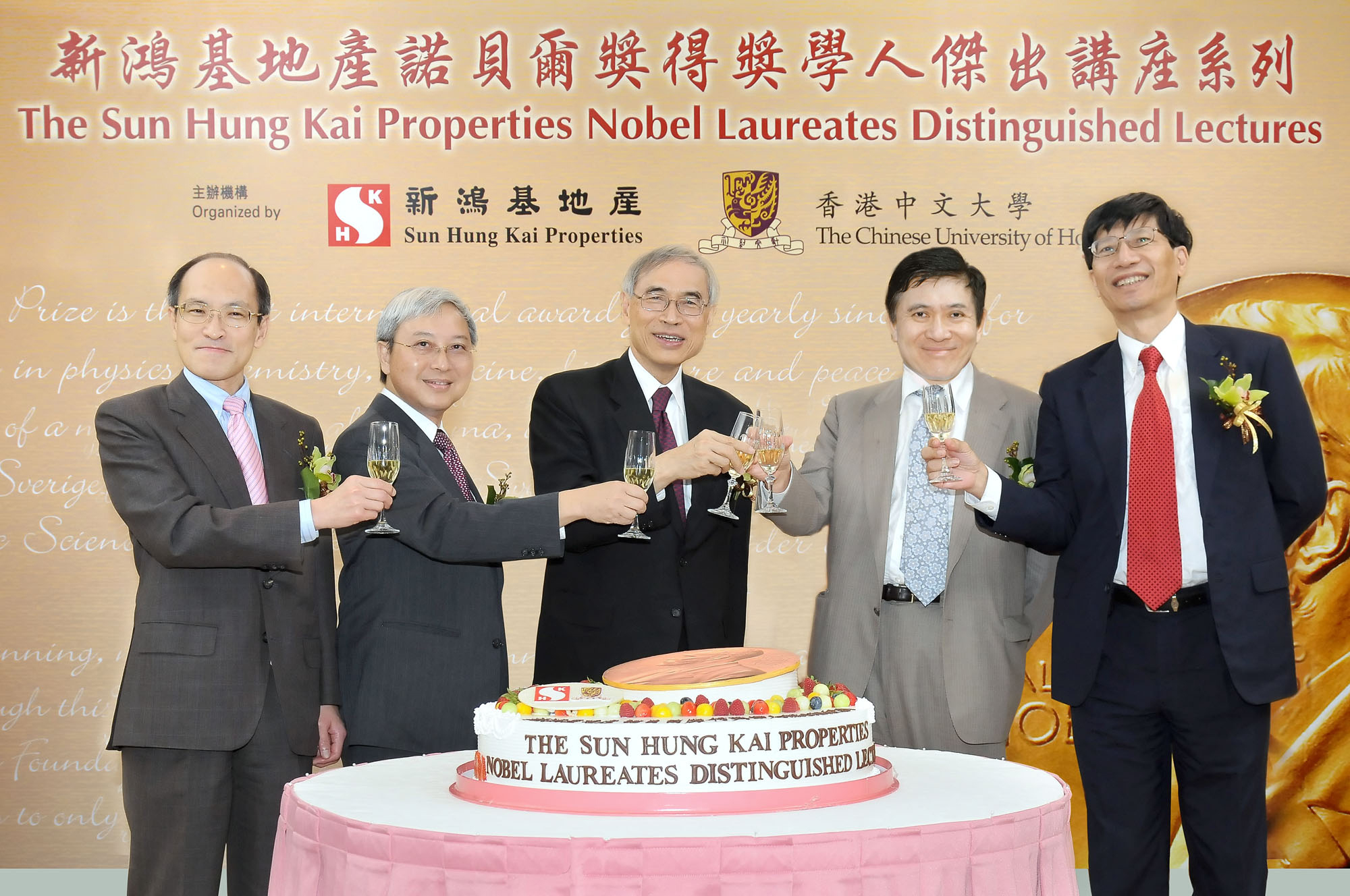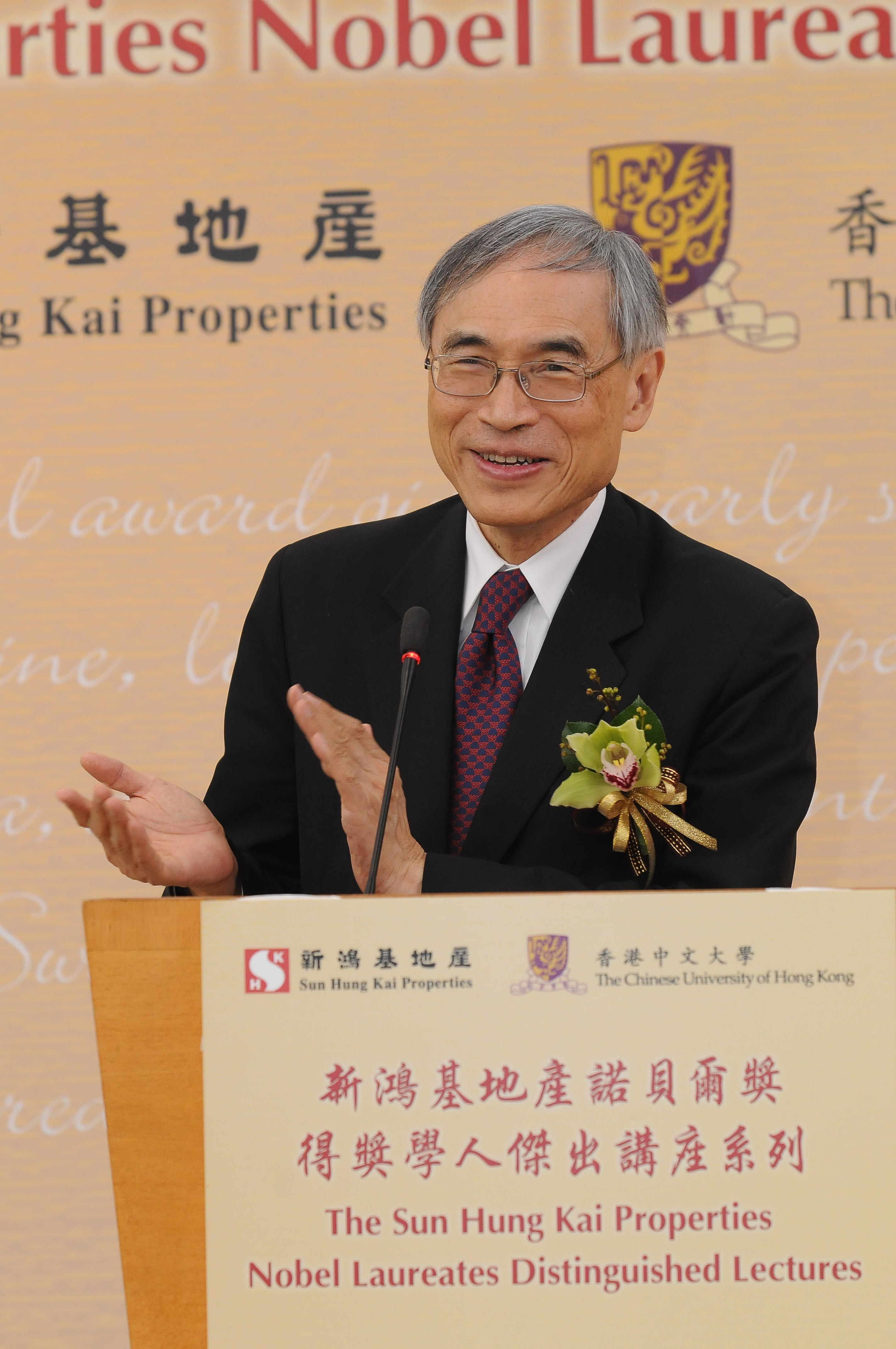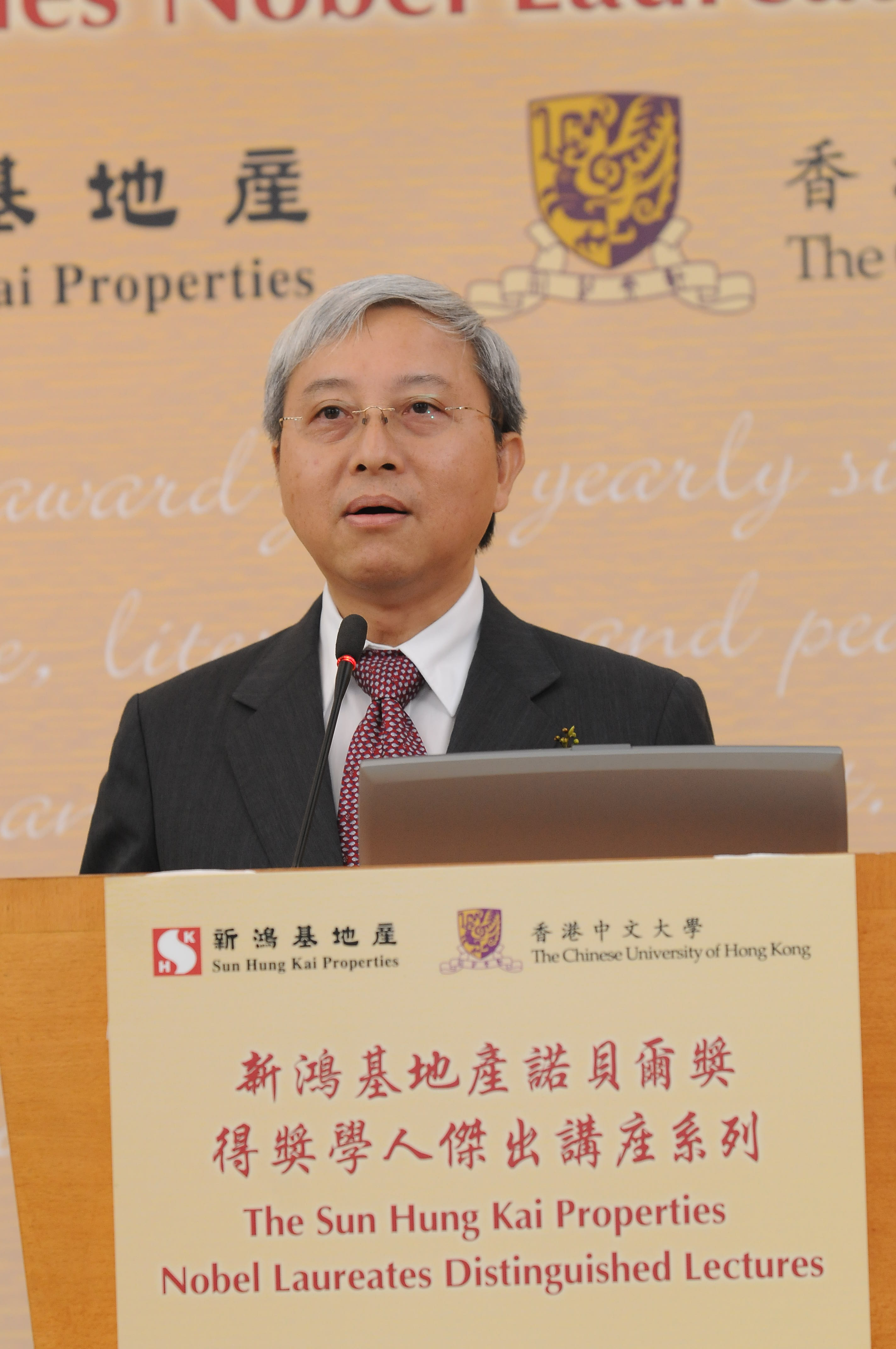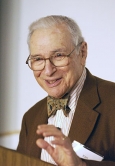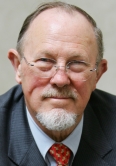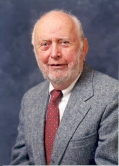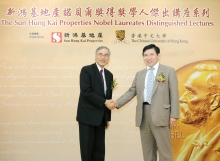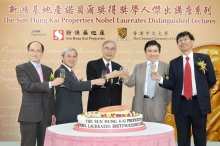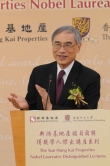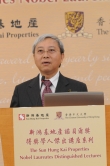CUHK
News Centre
SHKP and CUHK Celebrate Fifth Anniversary ofThe Sun Hung Kai Properties Nobel Laureates Distinguished Lectures
Sun Hung Kai Properties (SHKP) and The Chinese University of Hong Kong (CUHK) have been presenting the Sun Hung Kai Properties Nobel Laureates Distinguished Lectures Series since 2004; regularly inviting Nobel Laureates to Hong Kong to lecture, interact with scholars and educators and share their insights with the public. A total of 20 Nobel Laureates and renowned scholars participated in the series and over 10,000 members of the public have benefited from the scholarship of these distinguished speakers over the past 5 years.
SHKP Vice Chairman & Managing Director Dr Raymond Kwok and CUHK Vice Chancellor Professor Lawrence J. Lau hosted a ceremony today (23 October) to celebrate the fifth year of the lecture series and to announce three upcoming speakers. With economic issues taking centre stage in world affairs recently, it is opportune that three Nobel Laureates in Economic Sciences will lecture in the next two months:
‧Professor Kenneth J. Arrow, 1972 Nobel Laureate in Economic Sciences, to speak on Economic Analysis and Social Obligation on Monday 3 November 2008, at the CUHK Shaw College Lecture Theatre
‧Professor William F. Sharpe, 1990 Nobel Laureate in Economic Sciences, to speak on Financing Retirement: Collective and Individual Approaches on Saturday 29 November 2008, in the Grand Ballroom, Grand Hyatt Hong Kong
‧Professor Douglass C. North, 1993 Nobel Laureate in Economic Sciences, to speak on The Dynamics of Societal Change: A New Approach on Thursday 11 December 2008, at the CUHK William MW Mong Engineering Building Lecture Theatre
Dr Kwok said he was pleased that the series has become a popular intellectual draw for Hong Kong people and encouraged young people to attend the lectures and learn from world-class scholars. He said, ‘Talent is Hong Kong’s most valuable asset; one of the most important factors in developing a knowledge-based economy. To be a truly metropolitan city, Hong Kong people need to be knowledgeable, visionary and innovative, and to constantly seek progress. Throughout the years, we have sought to create a better Hong Kong by building homes with heart, supporting education, promoting reading and encouraging life-long learning.’ Dr Kwok hopes that by providing a platform for top scholars from around the world to lecture in Hong Kong and share their insights with students, it will stimulate passion for knowledge among the young.
Professor Lau believes that the lectures help the internationalization of CUHK and Hong Kong. He said, ‘Since its establishment, the lecture series has enhanced intellectual and academic exchange between world-class scholars invited to speak in Hong Kong and the local academic sector. The scholarship and insight of these Nobel Laureates have widened the horizon of our scholars and encouraged them to constantly seek excellence. Their scholastic charisma has also inspired the young to dedicate themselves to academic pursuit, and the community in general to exploration of new knowledge, hence uplifting Hong Kong’s academic, professional and entrepreneurial standards to meet with the world’s topmost ones.’ Professor Lau expressed confidence that the Lectures will be well received by the public, and his deep gratitude to SHKP for their generous support.
Lecture by Professor Kenneth J. Arrow
Professor Kenneth J. Arrow is a professor at Stanford University. He and John R. Hicks were awarded the Nobel Memorial Prize in Economic Sciences in 1972 for ‘pioneering contributions to general economic equilibrium theory and welfare theory’. Four of his students have also won a Nobel Memorial prize: John Harsanyi, A. Michael Spence, Eric Maskin, and Roger Myerson.
In the lecture entitled ‘Economic Analysis and Social Obligation’, Professor Arrow will discuss a major question of government policy and one of the most important issues facing the world in 2008 – the extent to which government should intervene in the workings of markets: for example when markets fail to operate properly, or when it is desirable to make income distribution more equal than the market outcome.
Lecture by Professor William F. Sharpe
Professor William F. Sharpe is the STANCO 25 Professor of Finance, Emeritus at Stanford University and past President of the American Finance Association. He received the Nobel Memorial Prize in Economic Sciences in 1990 with Harry M. Markowitz and Merton H. Miller for ‘pioneering work in the theory of financial economics’. Professor Sharpe is no stranger to Hong Kong; from 1999 to 2002, he was a Special Advisor to the Hong Kong Council of Advisors on Innovation and Technology.
Professor Sharpe was one of the originators of the Capital Asset Pricing Model and is best known in the finance community for the Sharpe Ratio, a measure that is almost universally quoted for different investment vehicles to express the balance between return and risk.
Professor Sharpe will lecture on Financing Retirement: Collective and Individual Approaches. This topic will be of great importance as, in the short term, many retirement plans have been thrown into disarray by the recent financial turmoil, and, in the long term, increasing life expectancy and changing demographics demand a fundamental re-examination of how a society transfers goods and services from active workers to children and the elderly. Individuals have to finance a substantial portion of their own retirement, relying on financial instruments and institutions. Professor Sharpe will speak about the need for educated and responsible citizens as well as trusted and transparent financial instruments and institutions: needs not fully met in most economies. The lecture will address these issues and suggest ways in which societies might better allocate resources and risks among generations.
Lecture by Professor Douglass C. North
Professor Douglass C. North won the 1993 Nobel Memorial Prize in Economic Sciences with Robert W. Fogel for ‘having renewed research in economic history by applying economic theory and quantitative methods in order to explain economic and institutional change’. His life-long quest has been complex variations on a simple theme: Why do some countries become rich, while others remain poor? During the past several years, he has begun to use insights from cognitive and behavioral science to better understand economic change over time. His research in this area is set forth in his book Understanding the Process of Economic Change. Another book: Violence and Social Orders: A Conceptual Framework for Interpreting Recorded Human History is forthcoming at the end of 2008.
Professor North will speak on The Dynamics of Societal Change: A New Approach. The talk will address the limitations of conventional economic theory, which only deals with how an economy operates at a moment of time. A new approach will be proposed for understanding the dynamic process of societal change that is at the heart of all economic development – whether the restructuring and rapid economic development seen in China over the past three decades, the prognosis for the decades to come or the need for system restructuring by the western world as it attempts to deal with the current financial crisis.
About the Lecture Series
The lecture series began in 2004, to bring Nobel Laureates speak to a broad cross-section of the local community and promote the discovery and the dissemination of knowledge, encouraging life-long learning and innovation.
Limited numbers of free tickets are distributed to the public. Tickets for the lecture by Professor Arrow will be available for collection commencing tomorrow. Interested parties can visit www.cuhk.edu.hk/nobellecturesfor more information. Details of the other lectures will be announced soon.
SHKP Vice Chairman & Managing Director Dr Raymond Kwok (right) and CUHK Vice Chancellor Professor Lawrence J. Lau host a ceremony to celebrate the fifth year of the lecture series and to announce three upcoming lectures by Nobel Laureates in Economic Sciences
From left: SHKP Executive Director Mr Michael Wong, CUHK Pro-Vice-Chancellor Professor Liu Pak-wai, CUHK Vice Chancellor Professor Lawrence J. Lau, SHKP Vice Chairman & Managing Director Dr Raymond Kwok, and CUHK Pro-Vice-Chancellor Professor Kenneth Young



